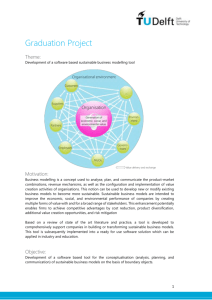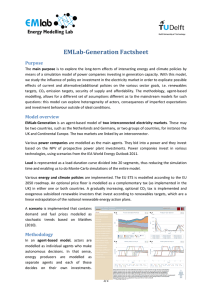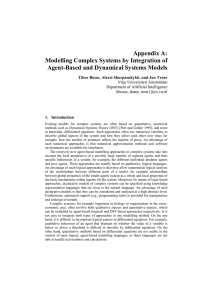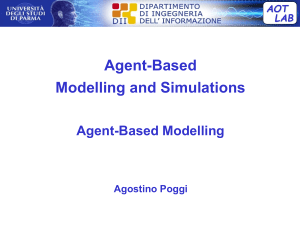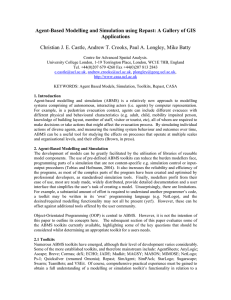International Development and Complexity Science James Porter
advertisement
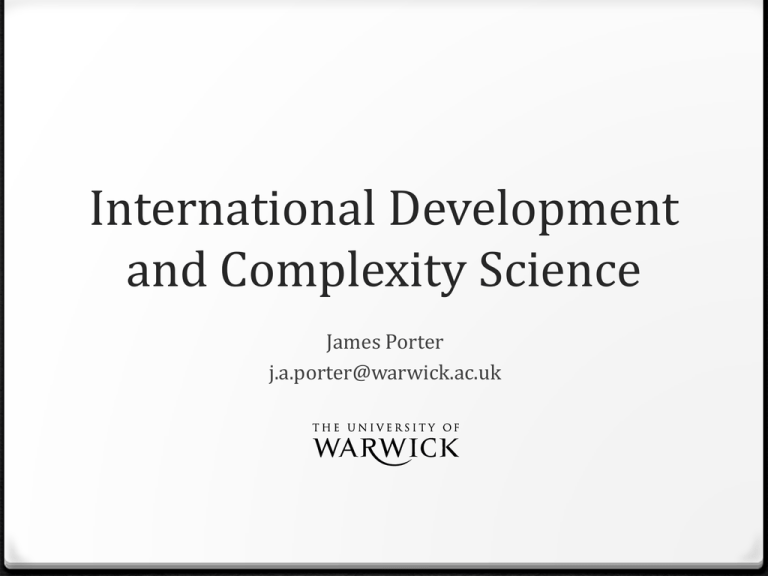
International Development and Complexity Science James Porter j.a.porter@warwick.ac.uk Overview Part I The UKCDS Project International Development Examples Part II Complexity Science/Methods Applications to Development Complex Policy Part I Project and examples UKCDS Project UK Collaborative on Development Sciences Exploratory Report… … and Workshop Further work International Development Both Long term developmental efforts Crisis response capability Development and Science Want to recognise science as a tool for providing evidence and discovering solutions “… most important book on development since Fritz Schumacher’s […] Small is Beautiful” Overseas Development Institute Ben Ramalingam et al, Exploring the science of complexity: Ideas and implications for development and humanitarian efforts, 2008. Ushahidi Ushahidi Platform Anyone can gather distributed data via SMS, email or web and visualize it on a map or timeline. The goal: create the simplest way of aggregating information from the public for use in crisis response. Free and Open Source project Crowdsourced mapping 2010 Haiti earthquake Open Street Map Operation Hope Reverse desertification 6,500 acres of parched and degraded grasslands in Zimbabwe into healthy pastures despite extended periods of drought Uses “Holistic Management”: Actions are guided by complex realities, rather than by rational and abstract concepts, goals must change continuously ‘Letting things go where they will’ implies accepting that things will unfold in unexpected ways, and there is a need to be flexible to that, taking up unforeseen opportunities as they arise and being prepared to abandon unrealistic aspirations along the route Open Data Open Data Challenge $15000 Part II Complexity Science and International Development Complexity? 0 Ideas? Complex if… Interconnected components Nonlinearity Self-organisation/self-organised criticality Adaptive agents Evolution Emergent properties Complexity Science Scientific, interdisciplinary study of complex systems? Complex(ity) Methods Things taught here in Complexity Science MSc… Nonlinear dynamics Stochastic processes Statistical physics Machine learning Not taught here… Decision theory Agent-based modelling Evolutionary game theory Applications to Development Data Computational modelling Network models Data Machine Learning Data Mining Agent-Based Modelling Simple qualitative models Realistic Models Something in-between Agent-Based Modelling Applications Schelling Segregation model FuturICT ? Network Modelling Epidemiology Health effects Applications of Network Models Guiding policy Structuring networks Targeting Complex Policy Uncertainty/stochasticity Complex development Multiple objectives Multiple stakeholders Uncertainty (Knightian) Uncertainty Risk International Panel on Climate Change Fourth Assessment Report: That warming of the climate system is “unequivocal”. World temperatures could rise by between 1.1 and 6.4 °C during the 21st century and sea levels will probably rise by 18 to 59 cm. There is a high confidence level that there will be more frequent warm spells, heat waves, and heavy rainfall. Complex Development What is development? Polarisation Aspiration Multiple objectives Economics = optimisation of one objective ? Millennium Development Goals (MDGs) 8 goals 21 (measurable) targets Analytical intractability Is it actually a problem? Arrow’s impossibility theorem UK electoral system Multiple stakeholders Collaborative decisions Collaboration “Crowdsourcing” Conclusions Changing availability of data Short term: ideas Long term: methods Questions/Comments Thanks to everyone who has offered ideas/suggestions/feedback

